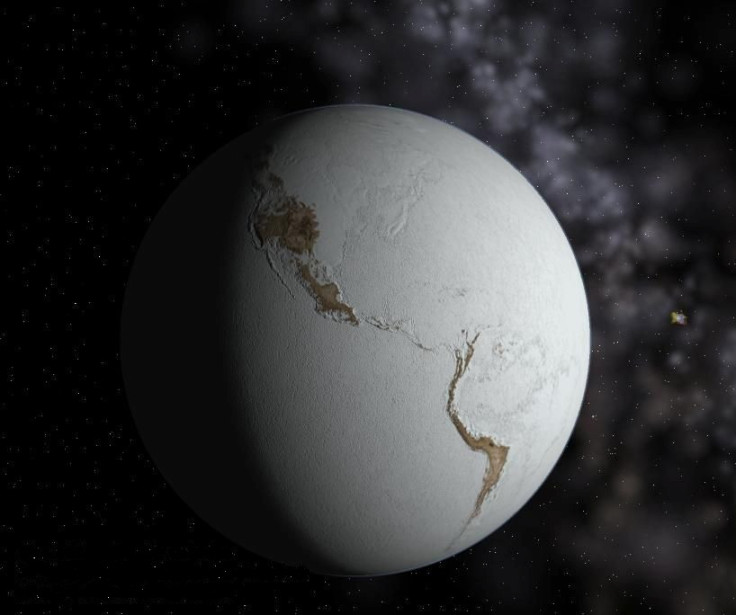An acid rainstorm lasting 100,000 years melted snowball Earth to let life emerge
The Marinoan glaciation lasted for millions of years and covered the Earth in ice from pole to pole.

An era of acid rain showering the whole world may have been all it took to push Earth from a giant snowball-like state towards the environment we know today.
Intense chemical weathering is the likely cause of the end of a period known as the Marinoan glaciation, which happened form 650 to 635 million years ago, according to a paper published in the journal PNAS. This was a time when all of the Earth's land and seas were frozen over, known as snowball Earth, with glaciers as thick as 2km.
So what kicked Earth out of its snowball phase?
It has been thought that a build-up of carbon dioxide and other greenhouse gases from volcanic activity drove the period of melting. High levels of carbon dioxide in the atmosphere led to very acidic rain. This would have washed over the continents in storms and left chemical signatures in the surface rocks.
This intense weathering led to the development of cap carbonates – characteristic layers of rock that form when calcium carbonate – chalk – falls out of solution in water. Chemical analysis of some of these rocks in southern China act as direct evidence for the intense chemical weathering that could have brought an end to the ice age, say the researchers based at Peking University in Beijing, China.
Presence of an isotope of magnesium isotopes in rocks in southern China is a tell-tale sign of the intense period of acid rain. It's thought that the deluge lasted for hundreds of thousands of years towards the end of the Marinoan period. The peak of the deluge occurred before cap carbonate deposits began to be laid down, the researchers say.
These environmental changes were enough to push snowball Earth out of its chilly equilibrium and begin to warm.
This, in turn, could have led to a period of intense diversity of life known as the Cambrian explosion, as the seas became warmer and more hospitable to life.
© Copyright IBTimes 2025. All rights reserved.






















